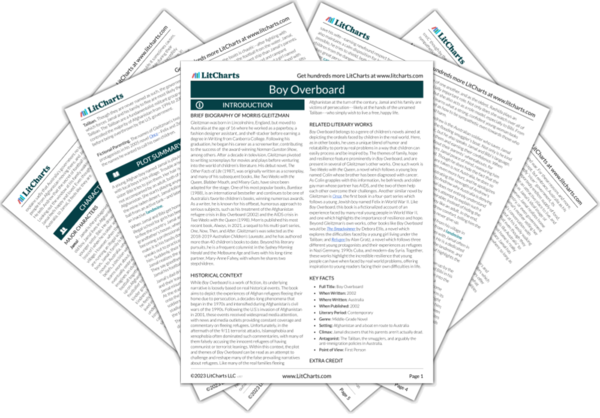Boy Overboard belongs to a genre of children’s novels aimed at depicting the ordeals faced by children in the real world. Here, as in other books, he uses a unique blend of humor and relatability to portray real problems in a way that children can easily process and be inspired by. The themes of family, hope and resilience feature prominently in
Boy Overboard, and are present in several of Gleitzman’s other works. One such work is
Two Weeks with the Queen, a novel which follows a young boy named Colin whose brother has been diagnosed with cancer. As Colin grapples with this information, he befriends and older gay man whose partner has AIDS, and the two of them help each other overcome their challenges. Another similar novel by Gleitzman is
Once, the first book in a four-part series which follows a young Jewish boy named Felix in World War II. Like
Boy Overboard, this book is a fictionalized account of an experience faced by many real young people in World War II, and one which highlights the importance of resilience and hope. Beyond Gleitzman’s own works, other books like
Boy Overboard would be
The Breadwinner by Debora Ellis, a novel which explores the difficulties faced by a young girl living under the Taliban; and
Refugee by Alan Gratz,
a novel which follows three different young protagonists and their experiences as refugees in Nazi Germany, 1990s Cuba, and modern-day Syria. Together, these works highlight the incredible resilience that young people can have when faced by real world problems, offering inspiration to young readers facing their own difficulties in life.
